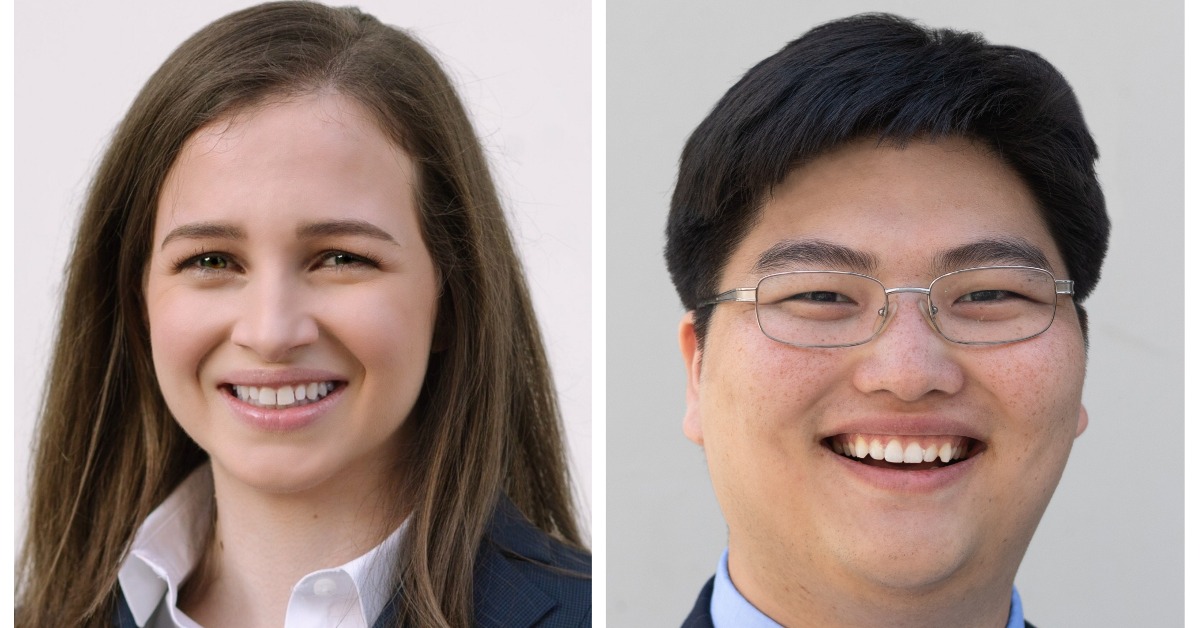Inside the Match
The residency match process is stressful, and figuring out how to navigate that process is complicated. But since last fall, it's been a little...
This is an exciting week for medical students, and one that will chart the course of their careers. It's Match Week 2021, where fledgling doctors find out where they'll be heading for their residency training and graduate medical education. The first few years of medical school have covered the basics and given med students short glimpses into different specialities, but now students are ready to take that next step of residency training, where they'll delve into the medical specialties they hope to pursue.
But it's not as simple as saying, "I want to be a pathologist and be a resident at XYZ Hospital. When do I start?" Like everything else in medicine, it's not that easy.
Enter the Match process...
For months, students have been busy sending applications to hospitals that offer training in their preferred specialty. Hospitals review applications and offer interviews to the candidates they're interested in. After completing interviews, students use the National Resident Matching Program (NRMP) to rank their choices of where they prefer to train. Meanwhile, the program directors are doing the same thing and ranking their favorite applicants.
Then the computer matchmaking begins. If you're thinking that this sounds like a high-stakes dating game, you're not wrong. The nonprofit NRMP combines all the ranked lists of about 44,000 soon-to-graduate medical students, and all the directors of the programs that have about 37,000 residency spots open in any given year.
As you can imagine, this isn't a simple process. NRMP uses a computerized mathematical algorithm to align the preferences of applicants with the preferences of program directors in order to produce the best possible outcome for filling training positions available at U.S. teaching hospitals. The algorithm is so well-designed that the creators of the concept actually won the Nobel Prize in Economics.
That process brings us to now, Match Week. Match Day is this Friday, when students find out their official assignments. But there's already excitement brewing, as students have been getting confirmation that they have been matched! They just don't know where they're heading yet. That news comes on Friday. Getting matched is not a guarantee, so the excitement and relief is palpable.
#PathMatch21 Matchy Matched! 🤩 pic.twitter.com/uGhJeuClCx
— Emily Gardner, MS, PA(ASCP) (@Defer2Permanent) March 15, 2021
Pathology Residency I can’t wait!!!Thank you #PathTwitter for inspiring me to be even more passionate about pathology! #PathMatch21 #Pathology #Path2Path #Pathologyresidency pic.twitter.com/sp59vLKfUu
— Deyze Badarane, MD, MPH, CPH (@DeyzeBadarane) March 15, 2021
Loving this #PathMatch21 energy and it's only been 1 day of #MatchWeek2021 so far! Can't wait to see what the future holds for all our amazing aspiring pathologists! #Looking forward to #VirtualPathMatch on Friday! pic.twitter.com/Jed5Mnxx1B
— Kamran Mirza MD PhD (He/Him) (@KMirza) March 16, 2021
Friday is when the real fun and planning begins. Residency positions start in June or July, so new residents have just a short period of time to relocate to their new cities and gear up for the next phase of their medical training. But until they find out their big news on Friday, tens of thousands of students are holding their breath, waiting for what is basically the first day of the rest of their lives.
For students who don't match, it's not over. Positions left unfilled after the matching algorithm has been processed are offered to eligible applicants through the Match Week Supplemental Offer and Acceptance Program (SOAP).
It may seem like the failure to match is an awful event for a med student, and surely it is scary and disappointing. However, it's worth remembering that sometimes things fall into place for a reason. Voicebrook recently interviewed Dr. Valerie Fitzhugh, a bold leader in academic pathology and one of the few black women in her esteemed position. She told us how she originally intended to become an orthopaedic oncologist... until she didn't match. Dr. Fitzhugh decided to pivot and ended up in pathology, and maintains that it is the best decision she's ever made. So, take heart... chances are, you'll end up where you're meant to be.
Be sure to read the following Twitter thread to learn more about Dr. Fitzhugh's match experience.
In light of this being Match Week, I want to tell a story. A story of not matching. Not matching is more common than you think, and many who do not match don’t want to share their stories. So I will share mine. #PathMatch21 #MatchDay2021 1/15
— Valerie A. Fitzhugh, MD (@DrFNA) March 16, 2021
Best of luck to everyone who is anxiously awaiting their #Pathmatch21! We are rooting for you!

The residency match process is stressful, and figuring out how to navigate that process is complicated. But since last fall, it's been a little...

Some Epic reps call VoiceOver PRO redundant—but PRO users call it indispensable. If you’ve been told your lab doesn't need VoiceOver PRO with Epic...
.png)
When Stamford Health made the enterprise-wide shift to Epic, their pathology department faced a familiar dilemma: would the new system support their...